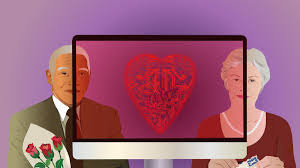 |
| pic was taken from here |
16
uncomfortable acts people try to avoid,
but
that actually makes your life better
1.
Worrying about not having a 5-year plan
The idea that any of
us know where we will be years down the road is an illusion – a comforting
illusion. It is better to focus on one step at a time than getting
overly-attached to a path you may not want t be on when the time arrives.
2.
Spending a whole day by yourself
In solitude, you find
self-awareness. When you don’t have to be anything to anyone else – you see
what it means to be yourself.
 |
| pic was taken from here |
3.
Doing “nothing”
Hyper-productivity is
gratifying in small doses, but it is in doing what we often brush off as “nothing”
that we find the true joys of life: reading a novel, having coffee and
breathing in the morning air, relaxing on the couch, laughing with friends and
having no further agenda.
4.
Admitting when you are wrong
As the adage goes:
would you like to be right, or would you like to be good?
5.
Not justifying your actions
We do not justify our
actions to convince other people we’ve done the right thing, we justify them to
convince ourselves.
6.
Letting go of feeling anxious for no reason
Instead of projecting
the feeling you don’t understand onto something measurable or concrete in your life,
just allowing yourself to feel tense or agitated for no discernible reason –
though scary – is what allows it to pass. Counting calories, saving money or
changing your hair won’t heal a problem that isn’t food, money or looks.
7.
Honoring your coping mechanisms
Rather than condemn yourself for what you had
to do to survive, appreciate that you got through what life handed you. Once you
do that, you can figure out what you need to do to thrive.
8.
Applying your judgments of other people to
yourself
Judgments are
projections from wounds, and there are few things that can better tell us what
we are unwilling to heal ourselves than what we point out needs to be healed in
others.
9.
Having something to talk about other than your
opinions about others’ lives
10.
Letting truths coexist
What was true 5 years
ago may not be true now, and yet, both were true for you at some point in time.
Embracing the paradoxes of life – that often, conflicting ideas can both be
true in their own ways – will save you a lot of stress.
11.
Knowing that too much indecision is a decision
If you have to think
about something too much, the answer is probably no. That which is meant for us
flows naturally without us having to consciously choose. Indecision is a
decision we have not yet come to terms with.
12.
Being willing to receive
Feminine energy tells
us what we want, masculine energy tells us how we can get it. When we have an
overabundance of the latter, we can close ourselves off to receptivity, intuition,
and wonder. Often, this leads to us feeling lost and disconnected. The willingness
to receive is the true beginning of healing.
13.
Allowing anger
Anger is such an
informative emotion. It tells us what we believe in, what we need to change,
and what we are passionate about. Allowing ourselves to feel it actually lets
us channel it, whereas suppressing it actually makes it come out in destructive
ways.
14.
Feeling healthy shame when you know you’ve done
something wrong
Shame becomes toxic
when we are self-punishing despite having not done anything wrong. Shame is a
healthy and crucial part of our emotional capacity that serves to show us when
we know we can do better, and should.
15.
Doing things slowly, but well
Cooking to cook, rather
than just eat. Working to create, rather than just finish. Walking to see, rather
than just arrive.
16.
Breathing fully and deeply
It is through breath
that we process emotion. People who are resistant to how they feel often cannot
take deep, easy breaths, or they will try to either distract themselves or fill
their bodies up with something that stops the processing (like food, or drink).
However, if you learn to breathe fully, and allow what comes up, you can get
through it – and no longer have to live with the beast in your belly.
Written by
Brianna Wiest, a
writer, strategist, and best-selling author. Her newest book on overcoming
self-sabotage is out now.
